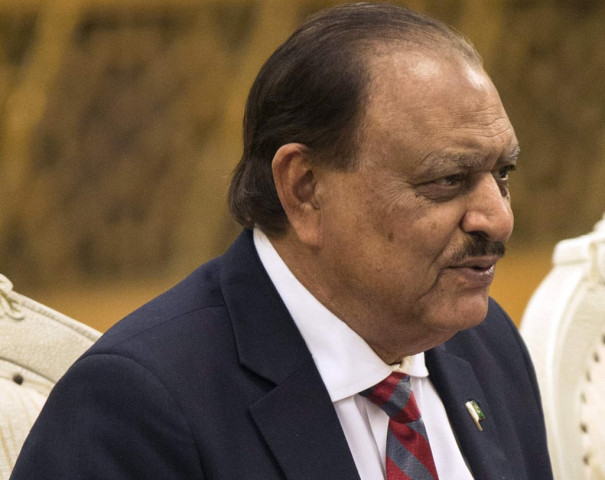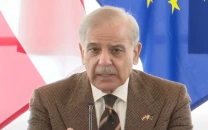Electoral reforms: President may lose discretionary power
Will have to consult ECP before announcing general election date

PHOTO: AFP
The president, according to a panel recommendation, will now share that power with the Election Commission of Pakistan and will announce the election date only in consultation with it.
Over the past few years, an assertive parliament has curtailed the authority of the president, taking away from him the power to dissolve assemblies and impose governor’s rule in the provinces.
Top polling body set to get more powerful
The Constitution stipulates that new elections should be held within 60 days, ie, if the assemblies are dissolved before their five-year term. Fresh general polls can be conducted within 90 days if the assemblies complete their term.
The president, as per the Constitution, announces the date for new polls and Election Commission of Pakistan (ECP) formulates elections schedule accordingly.
Parliamentary committee on electoral reforms which is vetting proposals to reform the election system has decided to make changes in the legal provision.
Under the proposed framework, the president would consult ECP before announcing elections date. Not a big deal, but it is a part of so many powers the president has lost over the years.
The first and the most potent discretionary power the president lost was the authority to dissolve the assemblies under Article 58-2B introduced through the Eighth Amendment in 1985 during Gen Zia regime.
HRCP urges political parties to initiate electoral reforms
During Nawaz Sharif’s tenure as prime minister in 1997, parliament unanimously passed the Thirteenth Amendment to the Constitution. It stripped the president of his reserve power to dissolve the National Assembly.
Initially, the 1973 Constitution provided a parliamentary system of government where the prime minister was all powerful and the office of president was largely ceremonial.
However, during the regime Gen Ziaul Haq, the governance system became quasi-presidential, tilting key powers to the presidency.
Following the exit of the last military ruler, Gen Pervez Musharraf, in 2008, a number of amendments were made in the constitution, restricting the powers that the the president had assumed during military regimes.
Extending election schedule
The committee has also decided to make provisions in the relevant laws so that ECP formulates a 60 days election schedule.
President rejects clemency appeals of four APS attackers
In the existing provisions of election laws, the ECP gets around 42-45 days from the day it announces its schedule and the final date for polling day.
Published in The Express Tribune, November 22nd, 2015.


















COMMENTS
Comments are moderated and generally will be posted if they are on-topic and not abusive.
For more information, please see our Comments FAQ